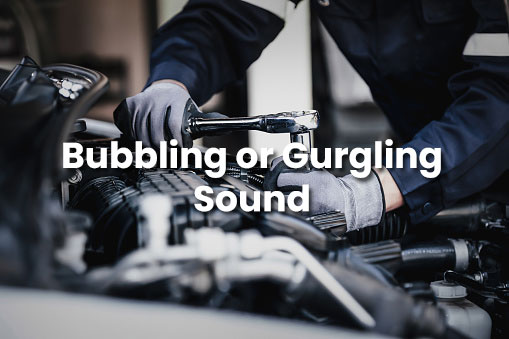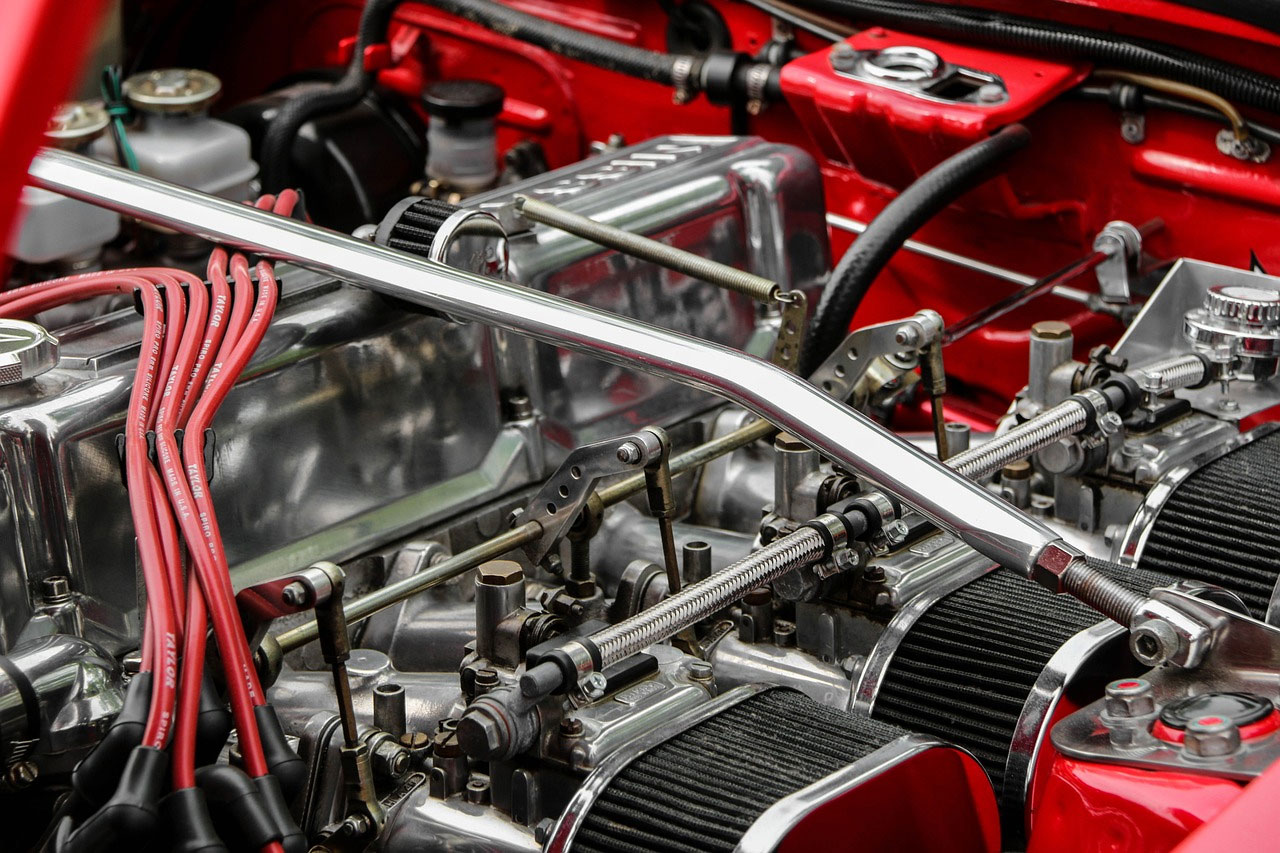Why Does Car Sound Like Its Bubbling or Gurgling?

What causes the gurgling sounds my car makes?
Your radiator will fill with air if your coolant levels are too low. Your cooling system's air pockets will produce a gurgling or growling sound. To avoid causing engine damage, leaks frequently appear from cracked hoses or a leaky water pump gasket.

Why can I hear the bubbling in my radiator?
Your property's pipes and radiators are being circulated with a lot of water, which eventually causes air bubbles to form. If the trapped air accumulates sufficiently, it can produce those bubbling, gurgling noises as well as the occasional cold spot in your radiator.
How can I fix coolant that is bubbling?
Replace the radiator cap if necessary. The coolant can also be topped off or completely flushed before replacement. After that, drive the vehicle. If the bubbling stops, a damaged radiator or low/contaminated coolant is to blame.
If your head gasket blows, can you still drive?
Yes, in a nutshell, but it is not advised. Ignoring a blown head gasket will probably result in further harm to your engine and your finances. The most crucial and essential components of any engine that serve to seal off compartments are gaskets.
Can bubbling be caused by low coolant?
Low fluid levels in the radiator are typically the reason why air bubbles form. The coolant may be getting old or there may be a leak, depending.
Will a failing radiator cause the coolant tank to bubble?
The coolant reservoir boils when this cap is broken or replaced with an incompatible one, allowing air into the cooling system. If the coolant reservoir has bubbles after a prolonged period of driving, the malfunctioning radiator cap is to blame.
How can you tell if your radiator has a bubble?
- Excessive heating while driving normally.
- The heater isn't working properly.
- Diminished performance.
- Rapid coolant loss and radiator leaks.
Why is my car bubbling even though it isn't hot?
The most typical sign of a bad head gasket is bubbly coolant. The combustion process is kept closed off by the head gasket. Compressed air will start to leak into the cooling system once it starts to fail at this. Eventually, the air will reach the radiator and cause the coolant to bubble.
Bubbling coolant—does it indicate a blown head gasket?
A blown head gasket is almost certainly the cause of bubbling coolant in your car. Visit a mechanic to get a formal diagnosis, then look into your repair options.
How much does a head gasket replacement cost?
How Much Does a Head Gasket Replacement Cost? A head gasket replacement typically costs between $1,624 and $1,979 on the national average. While the parts themselves range between $715 and $832, the associated labor costs are estimated to be between $909 and $1147.
What noise does a blown gasket make?
The compression of that cylinder is decreased if the head gasket leaks, allowing the compressed air and fuel to escape. This loss of compression causes the engine to run poorly and significantly reduces engine power. Typically, this kind of failure is accompanied by an exhaust leak-like sound.
Why is the undercarriage of my car bubbling?
Rising air pressure in the cooling system, which is indicated by bubbling, is a sign that a pocket of air is obstructing the liquid's flow. A blown head gasket, which causes the air pressure inside the cylinder heads to be transferred to the cooling system, is one of the most frequent causes.
What occurs when oil is exposed to air?
Once oil and air are combined, the air can spread as bubbles suspended in the liquid. Entrained air is what we have here. The equilibrium between the rate of air incorporation and the rate of air release determines the amount of entrained air in an oil.
Can you drive a car after it has overheated?
You should not drive your car if it is overheating. Low coolant levels or an unreliable cooling system are two potential causes of this. Driving a hot car puts more stress on the engine, which can cause more harm and expensive repairs in the future.
What symptoms indicate an overheated engine?
Some indicators of an overheating engine, in addition to the presence of smoke or steam coming from under your hood, include:
- A hot hood to the touch.
- A red warning light or the dashboard temperature gauge.
- A deafening ticking sound.
- On the ground is coolant.





